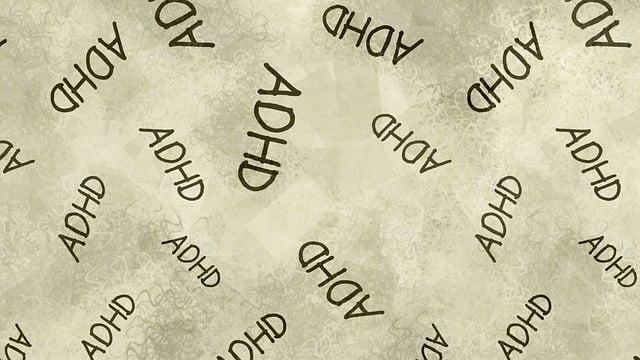Community outreach programs significantly enhance the well-being of young children through diverse services, including therapy tailored to emotional and behavioral challenges. These initiatives bridge healthcare gaps, especially in communities with limited access, by integrating bariatric evaluations focusing on both physical and psychological health. Educational workshops and engaging activities reduce mental illness stigma, empower young children to improve self-esteem, and encourage them to embrace their true selves. Effective outreach strategies cater to diverse communities, incorporate culturally sensitive approaches, and use data-driven evaluation methods for long-term health sustainability. Key components include therapy sessions, bariatric evaluations, and compassion cultivation practices for both mental health professionals and patients.
Community outreach programs play a vital role in enhancing the well-being of young children, offering essential therapy and bariatric evaluations. This article navigates the impactful implementation of such programs, guiding professionals through crucial steps. We explore identifying target communities with unique needs, designing engaging strategies to ensure access to care, and implementing therapeutic interventions through play. By measuring long-term success, we uncover continuous improvement in community health, ensuring a lasting positive impact on young lives.
- Understanding Community Outreach Programs: Their Role and Impact on Young Children's Well-being
- Identifying Target Communities: Assessing Needs for Therapy and Bariatric Evaluations
- Designing Effective Outreach Strategies: Engaging Families and Ensuring Access to Care
- Implementing Therapeutic Interventions: Supporting Young Children Through Play and Interaction
- Measuring Success and Sustainability: Long-term Benefits and Continuous Improvement in Community Health
Understanding Community Outreach Programs: Their Role and Impact on Young Children's Well-being

Community outreach programs play a pivotal role in enhancing the well-being of young children by offering diverse services tailored to their unique needs. These initiatives often include therapy sessions designed to address emotional and behavioral challenges, ensuring children develop into resilient individuals. By bringing specialized support directly to communities, especially those with limited access to healthcare, outreach programs bridge gaps in mental wellness care.
One notable aspect is the integration of bariatric evaluations within these programs, focusing on both physical and psychological health. This holistic approach acknowledges the interconnection between body image, self-esteem, and overall mental wellness. Moreover, community outreach can reduce the stigma surrounding mental illness by fostering open conversations through educational workshops and engaging activities. Such initiatives contribute to self-esteem improvement, empowering young children to embrace their true selves.
Identifying Target Communities: Assessing Needs for Therapy and Bariatric Evaluations

Identifying target communities is a critical step in implementing effective community outreach programs, especially when focusing on mental health and wellness initiatives. When it comes to therapy, young children are a vulnerable demographic that often requires specialized care tailored to their age and developmental stage. Assessing the need for therapy within these communities involves understanding cultural nuances and barriers to access. Public awareness campaigns play a vital role in educating parents and caregivers about available resources and promoting early intervention for childhood mental health issues.
Additionally, bariatric evaluations are essential aspects of community wellness programs, addressing the growing concern of obesity rates, particularly among youth. These evaluations aim to identify individuals at risk and provide necessary support through lifestyle interventions and counseling. Healthcare provider cultural competency training is crucial in ensuring that these services are sensitive to diverse cultural backgrounds, fostering trust, and encouraging participation in such health initiatives. Encouraging positive thinking and healthy lifestyles can significantly impact the overall well-being of targeted communities.
Designing Effective Outreach Strategies: Engaging Families and Ensuring Access to Care

Designing effective outreach strategies is paramount when aiming to engage families and ensure access to care for young children. Customized programs that cater to diverse cultural backgrounds, socio-economic statuses, and geographic locations are essential. For instance, communities with limited resources might require accessible and affordable therapy options, such as teletherapy or group sessions, tailored to address common challenges faced by young children and their families. Incorporating elements of anxiety relief and mental health policy analysis and advocacy can further enhance these initiatives.
Cultural sensitivity in mental healthcare practice is another critical aspect. By incorporating culturally relevant activities and communication methods, outreach programs can build trust and encourage participation from underrepresented groups. For example, when introducing bariatric evaluations or other specialized services, ensuring that materials and staff are sensitive to different cultural beliefs and practices will foster a welcoming environment. This approach not only encourages families to seek necessary support but also enhances the overall effectiveness of community outreach programs.
Implementing Therapeutic Interventions: Supporting Young Children Through Play and Interaction

Implementing community outreach programs that focus on therapeutic interventions can significantly support young children’s mental health and development. Play and interaction-based therapy are effective tools for addressing various issues, from anxiety relief to stress management. Through fun and engaging activities, these sessions create a safe space for kids to express themselves, fostering social skills and emotional intelligence. By integrating such programs into community initiatives, organizations can proactively identify and assist children in need, preventing more severe mental health challenges later in life.
When designing therapy for young children, bariatric evaluations should be considered as part of a holistic approach to risk management planning. This process ensures that each child’s unique needs are assessed, allowing for tailored interventions. Additionally, involving mental health professionals in the organization and delivery of these workshops can enhance their effectiveness while also providing support for the therapists themselves, addressing their own stress management needs through specialized training and resources.
Measuring Success and Sustainability: Long-term Benefits and Continuous Improvement in Community Health

Measuring success is a pivotal aspect of community outreach programs, especially when focusing on long-term benefits and sustainability in community health. By implementing effective evaluation strategies, such as regular therapy sessions for young children and bariatric evaluations, organizations can assess the impact and identify areas for improvement. This data-driven approach ensures that resources are allocated efficiently, benefiting the community’s mental and physical well-being.
Moreover, incorporating compassion cultivation practices and enhancing communication strategies among mental health professionals contributes to a robust framework. These initiatives promote better patient care, foster trust within the community, and encourage continuous learning. Regular risk assessments help in identifying potential challenges, ensuring that outreach programs remain adaptable and responsive to evolving needs, ultimately leading to sustained positive outcomes.
Community outreach programs, by effectively combining therapeutic interventions with accessible healthcare evaluations like bariatric assessments, can significantly enhance the well-being of young children. Through engaging families and ensuring these services reach underserved communities, we can create sustainable, positive change. By measuring success over time, we not only improve community health but also build a stronger foundation for future generations. This multi-faceted approach leverages play and interaction to deliver therapy for young children, making it a powerful tool in our collective pursuit of better health outcomes.











